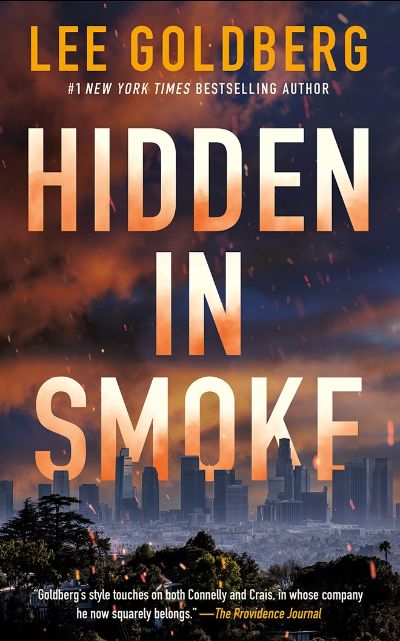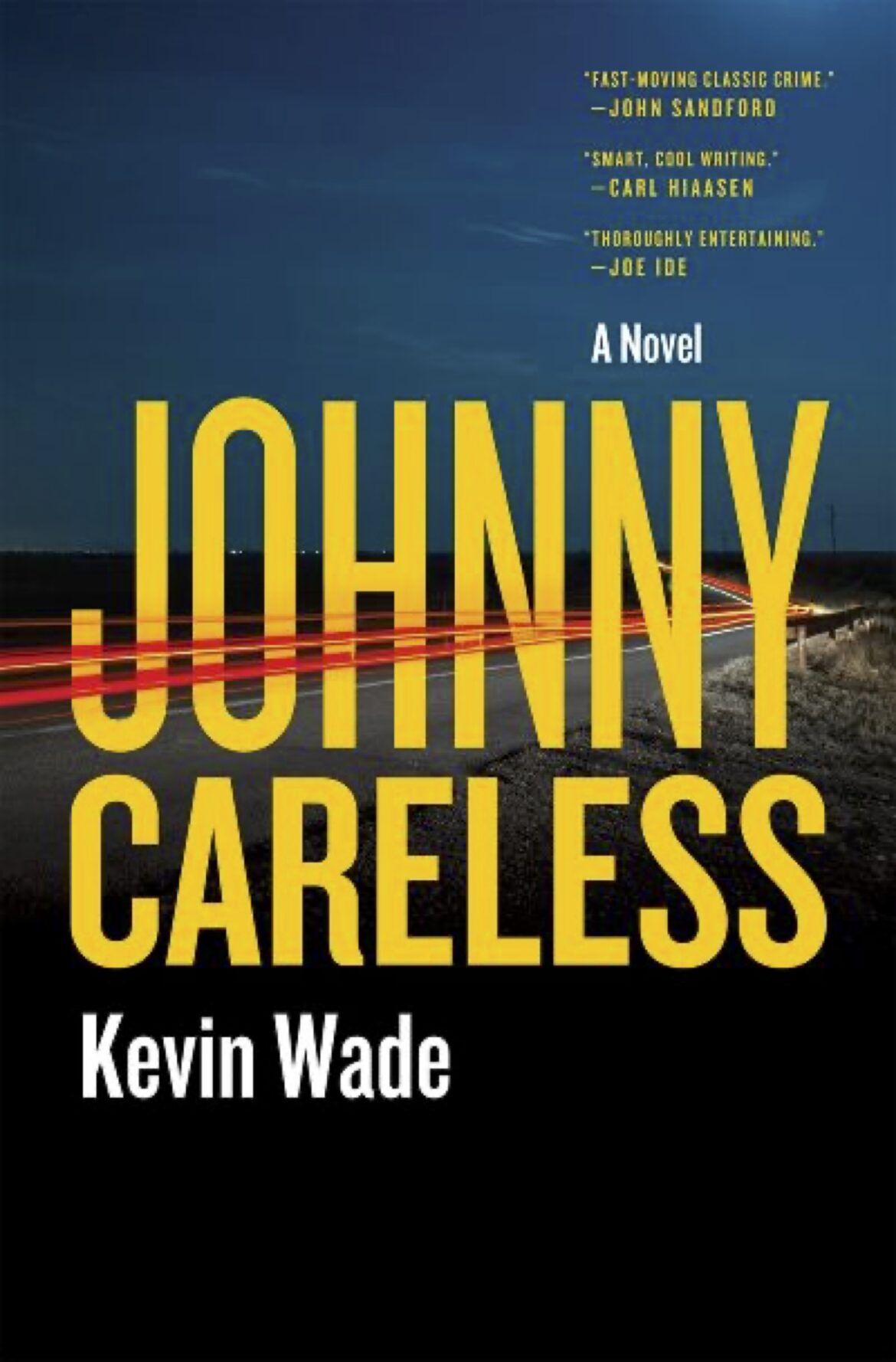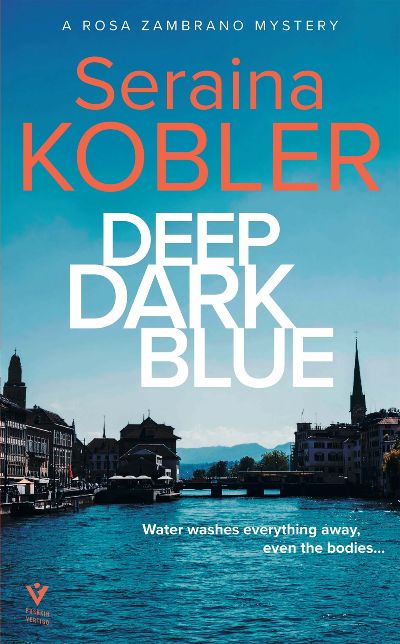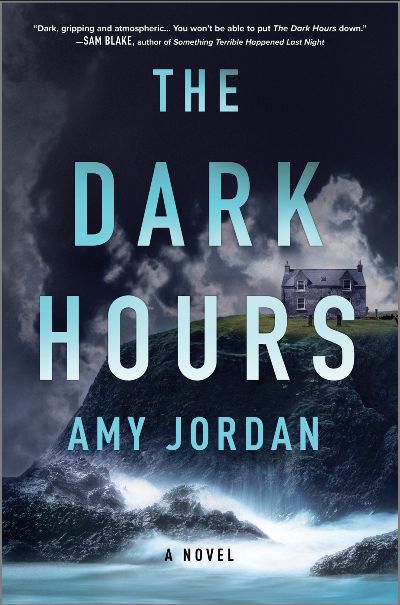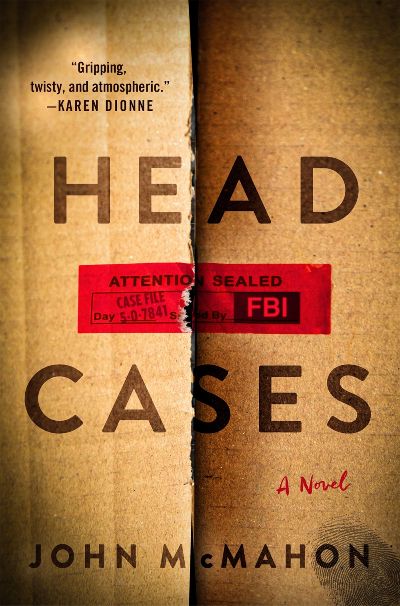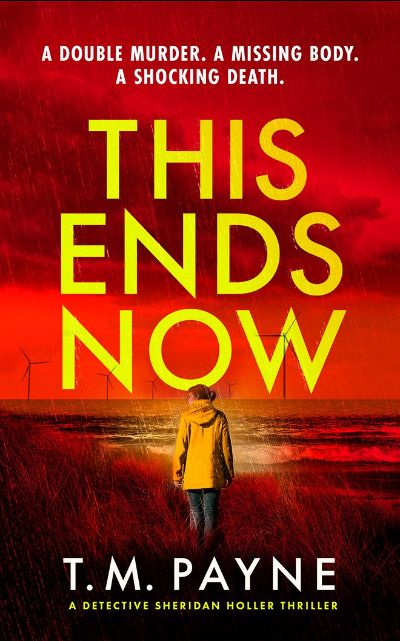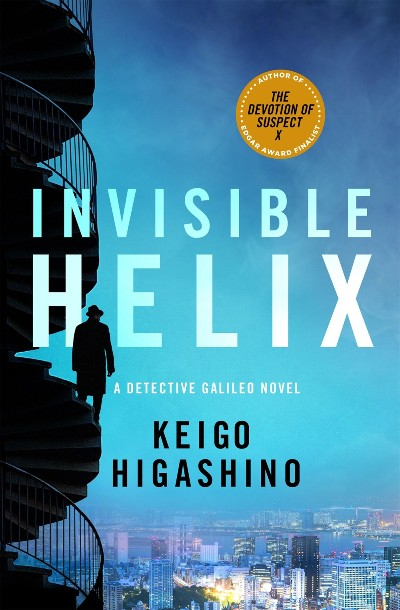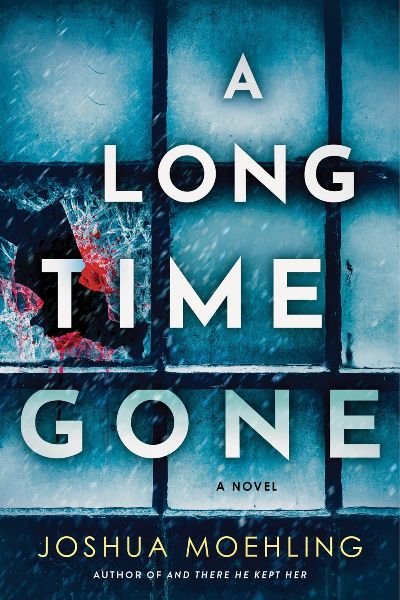Whip-smart, odd-couple arson investigators Andrew Walker and Walter Sharpe are back, this time probing a string of fires across LA. The worst is a blaze that has taken out part of a major highway. In a city that lives in its car, traffic that’s even more snarled is a disaster, and the investigators relish the chance to travel by helicopter while they sniff out—sometimes literally—clues and, at least on Sharpe’s part, exasperate all around them. Fans of the series will enjoy reacquainting themselves with a lovable criminal from the previous books (Ashes Never Lie, 2024; Malibu Burning, 2023), Danny Cole, who is continuing his revenge against a corporate monster. Tense scenes, some (awesome!), Mission Impossible-type capers, and the wonderful arson-fighting duo of Walker and Sharpe make this an exciting, absorbing addition to the series. Readers need not have read the previous books, but it adds to the experience.
Police Procedural
Eight months after a traumatic on-the-job accident almost killed her, George (Georgina) Lennox has been assigned her first case as a newly promoted Glasgow DI: to investigate the suicide of 18-year-old Alan Ferguson on a remote island in the Scottish Hebrides. A disappointed George protests to her boss: “Because nothing happens out there. These islands are medieval time capsules with a population of relics.” Arriving on the stark and barren Eilean Eadar with her partner, Richie Stewart, she finds an isolated community that still clings to its ancient Catholic faith (in Protestant Scotland) and that is deeply suspicious of outsiders. As George and Richie interview the locals, George senses that something is off about the place and its people. Mysterious double spirals are engraved into the village houses and farm crofts. The long abandoned lighthouse where Alan fell is also the site where three lighthouse keepers disappeared mysteriously a century ago. Late at night, George hears the howling of a wolf and spots a masked figure outside her window. Who is trying to thwart the investigation? At the same time, George and Richie clash over the DI’s use of prescription pain medication and her reckless tendency to charge into risky situations without backup. George is a compelling sleuth, tough yet also vulnerable and not always likable, but she has great chemistry with the fatherly Richie. Debut author McCluskey has written a compellingly spooky and creepy mystery with a hint of folk horror à la The Wicker Man. Fans of Ann Cleeves’s Shetland crime novels and Peter May’s Lewis Trilogy will delight in this atmospheric thriller.
Police Chief Gerald Paul (Jeep) Mullane oversees a small town on the North Shore of Long Island after leaving the NYPD after an incident. He’s sometimes too friendly, and the bureaucracy above him would prefer him to be more ruthless. Jeep grew up surrounded by luxury in the area, but his upbringing was the opposite. His childhood friends were Johnny Chambliss, who had the nickname Johnny Careless, and Niven Croft, a woman for whom Jeep buried his feelings as he watched Johnny and Niven eventually marry. A Sunday morning call has Jeep visiting the scene of a body that washed up on the Bayville shore, and the dead man is Johnny. Jeep hadn’t seen his friend in a while, but they were still close, even after Johnny and Niven divorced. The story moves between Jeep reflecting on his past with Johnny and Niven and working with reluctant family members and higher-ups to get answers about the death, forcing Jeep to confront parts of his life he wanted to forget. Wade, screenwriter and showrunner for the soon-to-be ending CBS series Blue Bloods, understands that crime drags in the perpetrators, the victims, and the investigators and nobody comes through unscathed. He delivers a novel that oozes atmosphere while showcasing realistic characters in a gritty setting that could easily be a headline in tomorrow’s papers. Fans of the television series and those who enjoy a good crime drama will enjoy this, though remember that network television standards do not hinder this author on the page.
The city of Zurich, surrounded by water, offers scenery, culture, scientific innovation, and activism to its citizenry. Rosa, a member of the maritime police, usually swims or rows daily, but takes a morning off to have her eggs harvested and frozen. The body found in a fisherman’s net days later turns out to be that of the doctor who performed the procedure. Despite her personal involvement, Rosa is assigned to work the case with the regular police department, awkwardly partnering with a former love interest. Multiple crimes, seemingly unconnected, ultimately come together. Cutting-edge genetics, not usually mystery fodder, is the key. Rosa and her friends and colleagues are engaging, and unlike her American counterparts, Rosa has time for an active social life. The translation is smooth but still carries a cadence and flavor that keeps its context. Intrigue, corporate greed, runaway science, and sexual infidelity come together in a complicated story that may send readers to a map of Zurich for the bigger picture.
Julia Harte, retired from the Irish police, has effectively hidden herself away from her infamous past in a sleepy village. As a young Garda, she was instrumental in solving the most notorious serial-killer case of the day, with both emotional and physical scars to show for it. After her successful police career, she writes what is intended to be a textbook for police training, only to have it become a bestseller for true-crime aficionados. Thirty years later and days after Cox, the serial killer, dies of natural causes, there is another frighteningly identical killing, drawing Julia and her former mentor into the case as consultants. The author artfully intertwines the stories from the past and present, creating a palpable sense of dread and foreboding. While we know Julia solved the past crime, we don’t know how. The gradual revelation of the past informs the solutions of the present, and while the situation is similar, Julia is not the raw beginner she once was. The characters are well drawn, the landscape is integral to the telling, and while this is a debut novel, it doesn’t read like a practice run.
Thirty-two years ago, curmudgeonly, old-school Detective Superintendent Peter Diamond of the Bath CID made his literary debut in the Anthony Boucher Award-winning The Last Detective, exonerating a woman accused of murder. Three decades later, the seasoned cop, much to his dismay, is under pressure to retire. For Diamond, whose identity is tied to his job, “retirement is the waiting room for death.” But his partner, Paloma, convinces him to accept his former colleague Julie Hargreaves’s invitation to visit her in the quaint village of Baskerville. Leaving the mean streets of Georgian Bath for rural Somerset, Diamond soon learns that Julie has an ulterior motive for his visit; unable to proceed further in her inquiries due to a physical disability, she wants her old boss to reexamine (unofficially) the manslaughter conviction of farm owner Claudia Priest for the suffocation death of a man in a grain silo. Julie suspects that the fatal accident was murder and that someone other than Claudia was responsible. Embarking on a busman’s holiday as an undercover detective, Diamond aims to solve his first village mystery, even if it means mucking in real mud (including reluctantly helping a cow give birth). As he tries on different amateur sleuthing hats (bumbling Columbo, nosy Miss Marple), he begins to learn things about himself that reveal there might be a possibility of a good life after retirement. MWA Grand Master Lovesey bids a fond farewell to his protagonist with this bittersweet series finale that mixes a cozy Midsomer Murders setting with colorful characters, surprising twists, and plenty of heart and humor.
Gardner Camden has found his perfect home in the FBI’s PAR, or Patterns and Recognition division. Like the department itself, Camden is thought of by other agents as weird, and it doesn’t help that he almost had PAR disbanded by making a terrible mistake that’s kept secret till near the end of the book. Still, he’s brilliant at noticing what nobody else does and relentless at finding the worst of the worst of criminals. He found one of those years before, dead in a fire. But in the case that opens this fascinating thriller, the same man is found dead at a crime scene, with numbers scrawled on his body. Next more killers are found murdered, also with messages to PAR, or maybe to Camden, at the scene. Finding out who is killing serial killers, and why, takes Camden and his lovable team on cross country treks and through psychological torture as the suspect won’t hesitate to go after all the team holds dear. Camden’s first-person narration brings readers inside the head of a steadfast but quirky man (“I’ve been called…Unconcerned. On the spectrum. A weirdo”) as he puzzles out wicked and tangled crimes and the minds behind them. McMahon’s debut novel, the first book in his P.T. Marsh series, was a New York Times Top 10 Crime Novel and a finalist for both the Edgar Award and the ITW Thriller Award, and his other books have been lauded as well. This is more great stuff and a must for your TBR pile.
With a shooting in her past, Liverpool Police detective Sheridan Holler is already known to new chief inspector Hill Knowles when the no-nonsense woman takes the job. Sheridan’s first assignment under the new boss is related to a cold case: Ronald Parks was accused of killing his son, but was acquitted. Now two bodies have been found on the local beach. One is tied to a statue, the other buried so that he drowned when the tide came in. Sheridan must inform the victims’ next of kin, a young bookshop owner, of the deaths, and she becomes central to the case, suffering further losses and dreading the police’s next knock on the door. Given the circumstances, but also because of her doggedness at the job, Sheridan relentlessly pursues all the tenuous clues that come up. Nevertheless it seems that this case may go unsolved. While readers soak in the rich details of life as a year-rounder in an English seaside town, and Sheridan’s loving wife who’s sometimes exasperated at her partner’s dedication to the madness that is police work, Sheridan continues to pick away at the case, leading to a shocking conclusion. Note that there is particularly awful sexual abuse here. A startling and engrossing whodunit.
A new Higashino that will meet the expectations of his many fans, and then some. As is typical of Higashino’s unique police procedurals, the story goes both deep–into the past of its leading characters—and broad—Japan today, for example, where we learn about Japanese culture, such as the world of hostess clubs. The story begins with the discovery of a young man’s body in Tokyo bay; a bit of research reveals he is quite the loser who lives off his girlfriend while continuing to abuse her. But by the time the detectives locate their apartment, she’s skipped town. A likely suspect? Yes, but with an airtight alibi. Which draws Detective Kusanagi to “Detective Galileo,” a scientific genius and old friend, and the star of Higashino’s most well-known work The Devotion of Suspect X. In Galileo’s hands, connections are illuminated, the trauma of the past is brought to the forefront, and we learn the startling connections that link our characters. Brilliantly plotted and wonderfully rich in characterization.
The third in Moehling’s Ben Packard series is far and away the best. Deputy Packard is off work—he’s on leave, pending an investigation into a shooting—which gives him the time to investigate some new information about the disappearance of his older brother, Nick, who left their lakeshore family home when they were just kids, never to be seen again. The new information attracts his mother, Pam, to northern Minnesota, as much to check in on Ben as to explore where Nick may be buried. Pam—one of Moehling’s greatest creations—is a New Age, crystal wearing, sex-positive, Wiccan practitioner who would like nothing more than to see Ben find a boyfriend and does everything in her powers to hook him up. While the search for Nick takes a bit of a back seat, Ben can’t help but pursue a far more expansive and contemporary investigation that exposes corruption among County officials. See why so many people were happy to see Ben out of the picture? Add to this another story, brief but hugely meaningful, that provides yet more information about Nick. It’s amazing how Moehling keeps all these narrative balls in the air, but even more amazing is how they eventually come together. For those who love classic mysteries, police procedurals, and family drama.

